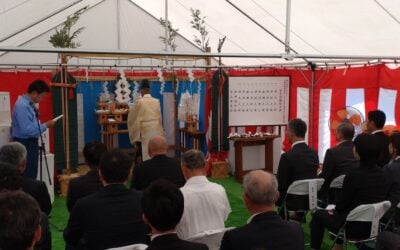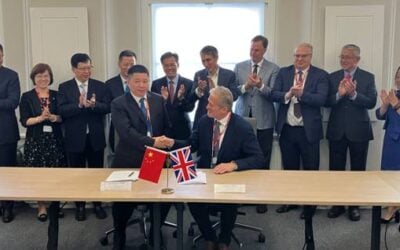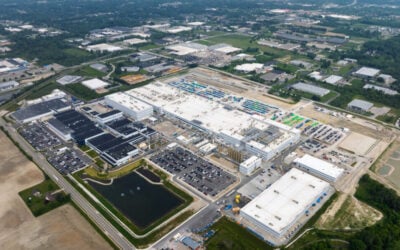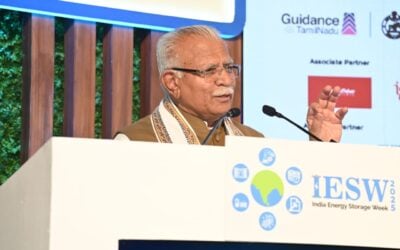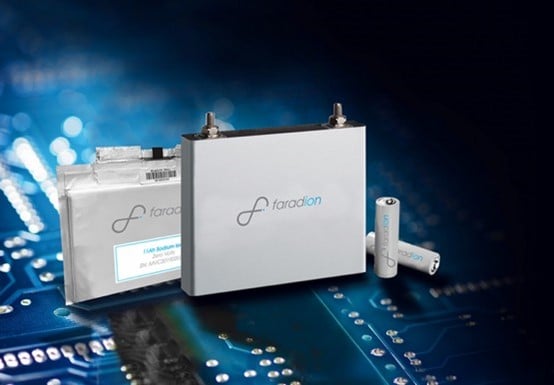
India’s Reliance Industries has completed the takeover of sodium-ion battery company Faradion, while Amazon is set to trial a novel flow battery technology.
Reliance New Energy Limited now has Na-ion subsidiary
Lithium-ion (Li-ion) presently dominates the global energy storage and electric vehicle (EV) sectors as the battery chemistry of choice.
Enjoy 12 months of exclusive analysis
- Regular insight and analysis of the industry’s biggest developments
- In-depth interviews with the industry’s leading figures
- Annual digital subscription to the PV Tech Power journal
- Discounts on Solar Media’s portfolio of events, in-person and virtual
According to the International Energy Agency (IEA), the energy sector accounts for more than 90% of lithium battery demand and battery storage for the power sector was the world’s fastest-growing commercially available energy technology in 2023.
Despite this clear dominance, driven in part by continued price declines of Li-ion batteries and improvements in energy density, efficiency and safety, there is no shortage of alternative electrochemical energy storage technologies competing to take a share of the market.
Sodium-ion (Na-ion) is widely considered a promising alternative chemistry, with sodium being a more abundant and lower-cost raw material than lithium.
Unlike lithium-ion batteries, Na-ion batteries can also be safely transported when fully discharged to zero volts and can be manufactured using broadly the same techniques and equipment.
However, to date, Na-ion battery makers have struggled to make products that overcome the tendency for cathodes in their devices to decline in performance quite early, while the energy density of sodium batteries is at present lower than that of comparable lithium products. However, some companies are now claiming to have created viable sodium-ion batteries and are starting to go into mass production.
UK startup Faradion had developed IP around several aspects of Na-ion technology, and Reliance Industries – one of India’s major multinational conglomerates – acquired a majority stake in the company at the end of 2021 for around US$135 million.
In a disclosure to the National Stock Exchange of India this week (29 October), Reliance Industries said that Reliance New Energy Limited (RNEL), the conglomerate’s subsidiary in the renewable energy and storage sectors, had completed the acquisition of Faradion, moving its shareholding from 92.01% to 100% of equity.
When the acquisition was announced three years ago, Reliance said that it intended to use Faradion’s sodium-ion technology at a new battery gigafactory in Jamnagar, India. The company said this week that Faradion now becomes a wholly owned subsidiary of Reliance New Energy Limited.
In September, Reliance Industries chairman and managing director Mukesh Ambani said that production will commence in the second half of next year at its Jamnagar factory. The company would begin making utility-scale battery energy storage system (BESS) solutions and commercial and industrial (C&I), residential and telecoms battery packs.
However, progressively “over the next few quarters”, it would “integrate backward to cell manufacturing and eventually to battery chemicals production”, Ambani said at the Reliance Industries AGM.
Reliance is also an investor in US liquid metal battery startup Ambri, and after the MIT spin-off went bankrupt recently, looks to become one of its new owners as it relaunches.
Amazon to trial new flow battery
Online retail giant Amazon has agreed to trial a novel flow battery technology made by a Swiss startup called Unbound Potential.
Flow batteries offer the decoupling of energy and power at the battery stack level, which means that energy storage capacity can be increased simply by increasing the size of liquid electrolyte tanks. Again, less energy-dense than lithium-ion, flow batteries have been marketed as an alternative to lithium for applications that require long-duration energy storage (LDES) at discharge durations of about eight or more hours.
They have been around for several decades, first developed by US space agency NASA in the 1970s but then discarded before a team of researchers at the University of New South Wales in Australia invented the vanadium redox flow battery (VRFB) in the mid-1980s, around the same time the first lithium battery prototype was made.
However, the energy storage market, to date, has been focused on shorter durations and the perceived technology advantages of flow batteries, which include recyclability and resistance to degradation, have not been outweighed by their higher capital cost over Li-ion.
The VRFB is the most common type of flow battery, using vanadium pentoxide electrolyte, but rival chemistries exist, including zinc-bromine, iron and saltwater.
A handful of flow battery makers have not revealed their electrolyte chemistries but used terms such as ‘organic electrolyte’ or not hinted at all, and Unbound Potential falls into this category, based on publicly available materials on the startup’s website and its Amazon announcement.
However, the company describes its technology as a ‘membrane-less redox flow battery,’ which it began prototyping in September 2021.
In other flow batteries, a membrane is used to separate the electrolytes, whereas ion exchange in the Swiss startup’s battery is controlled by non-miscible electrolytes. The company claims this makes the battery more durable without membranes that degrade, and reduces the cost and complexity of manufacture versus competing technologies.
Unbound Potential hopes to begin installing pilot projects soon and make its first containerised system by the middle of 2025 before ramping up to 300MWh of installations per year by late 2027.
Having entered an Amazon climate technology accelerator programme, it was selected to help the retailer get closer to powering its 24/7 fulfilment centres with renewables and operating independently of grid electricity.
The location and time frame for the pilot is still to be decided, Unbound Potential said. Through the pilot’s lifetime, Amazon will assess the technology to see how it runs and whether it could be scaled up and rolled out across its fulfilment centres.

